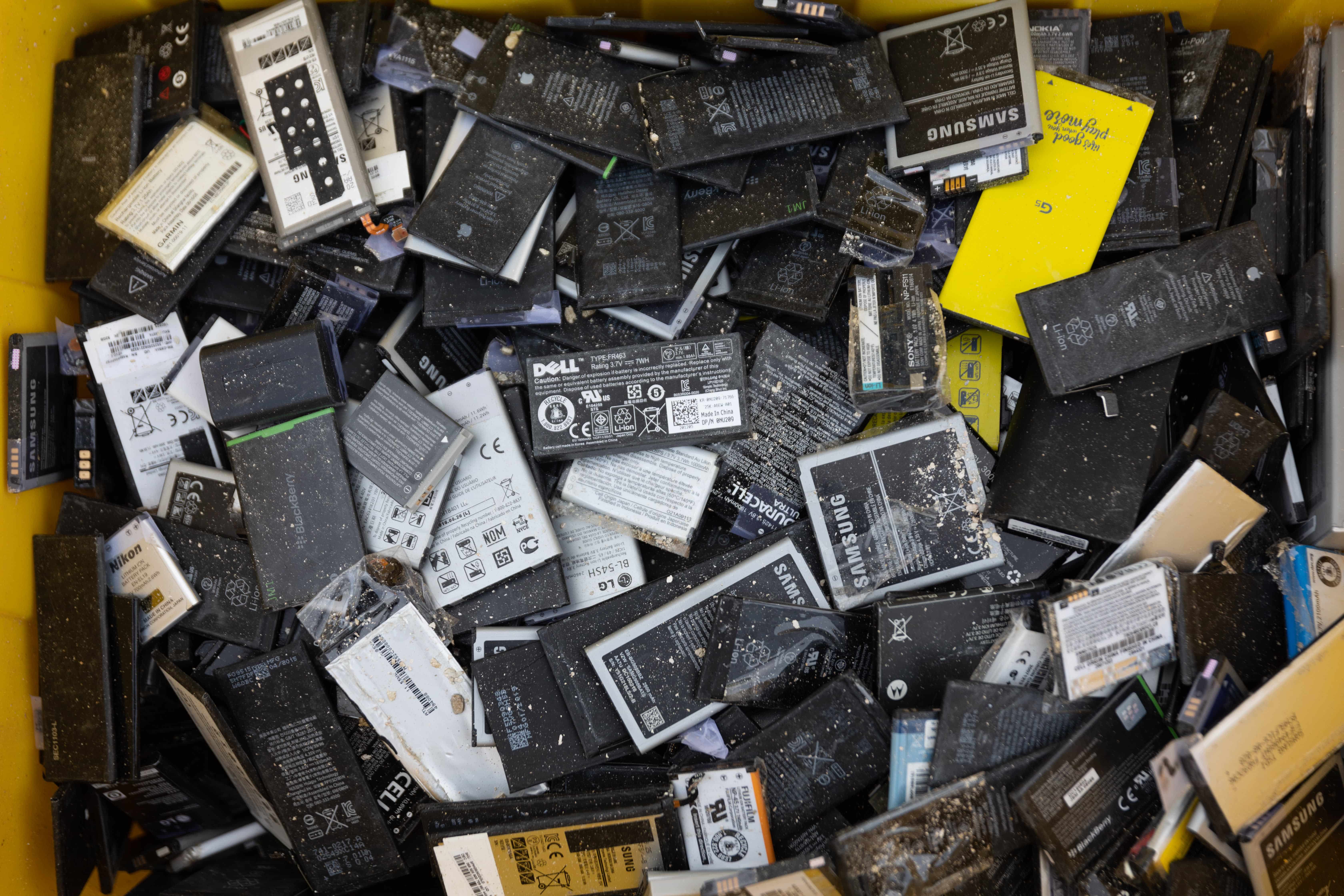Is It Dangerous to Throw Away Batteries?

You’ve probably heard conflicting advice about how to dispose of batteries. Some people may tell you to chuck them in the trash, while others say you could blow up your whole house that way. The truth is somewhere in the middle and largely depends on the type of batteries you need to discard.
Types of Batteries
There are three main types of batteries to consider.
Single-Use Batteries
Single-use batteries include alkaline and zinc-carbon batteries, coin batteries, and some lithium batteries. You are probably the most familiar with alkaline and zinc-carbon batteries such as AAA, AA, C, and D. These batteries can technically be safely thrown in the trash in most municipalities.
However, the EPA recommends sending your old alkaline and zinc-carbon batteries to a battery recycler to avoid toxins leaking into landfills.
You should never throw coin batteries or single-use lithium batteries in the trash. Keep these batteries away from sparks or fire. They should be properly packaged by wrapping them with tape and brought to a local battery recycler.
Rechargeable Batteries
Everyone loves rechargeable batteries because of their longer lifespan, but eventually, they give out. Rechargeable batteries are typically either nickel-based or lithium-ion and should not be thrown away. You’ll find rechargeable batteries in things like:
- Cell phones
- Laptops
- Power tools
- Cameras
- Tablets
- E-cigarettes
Just to name a few. When your rechargeable devices finally run out of juice, it’s time to recycle the battery. Remove the battery, properly package it, and take it to an experienced, certified battery recycler. Sometimes rechargeable batteries cannot be removed, like in some smartphones, and the whole device must be processed.
Throwing away rechargeable batteries at home instead of recycling them can be dangerous. Lithium-ion batteries are known to catch fire and even explode if the terminals of two batteries come in contact.
Car Batteries
Cars today have one of two types of batteries, lead acid or large-scale lithium-ion. You should absolutely never throw these batteries in your trash can. Always take precautions when dealing with these batteries.
Lead-acid batteries contain dangerous chemicals such as sulfuric acid and lead and can only be disposed of by the battery manufacturer or a local, well-equipped battery recycler.
Is It Illegal to Throw Batteries Away?
The Mercury-Containing and Rechargeable Battery Management Act of 1996 made it illegal to throw nickel-cadmium and lead batteries in the trash. Professionals must manage their disposal. It is not unlawful to throw away alkaline and zinc-carbon batteries in the trash. But that doesn’t mean it’s the best way to dispose of them. Ideally, you should recycle all of your batteries.
How to Recycle Batteries
When prepping batteries to be recycled, you must take certain precautions. You should cover any exposed terminals with non-conductive tape and bag batteries by type. You must also properly label the bags with Universal Waste labels. Once you complete this step, you can take it to your trusted local battery recycler for processing. If a battery is swelling, leaking, or damaged, contact the manufacturer for the correct way to dispose of it.
Call SEAM
If your business has batteries to recycle in South Dakota, don’t hesitate to contact the pros at SEAM today. In Sioux Falls, residents can bring batteries to the Household Hazardous Waste Facility. Businesses or non-Sioux Falls residents can bring them to SEAM. Our certified business can handle your battery disposal safely.
SEAM provides IT recycling and data destruction services including onsite shredding and hard drive wiping to South Dakota, North Dakota, Minnesota, Iowa, and Nebraska.
Schedule a pickup or contact us for more information.





